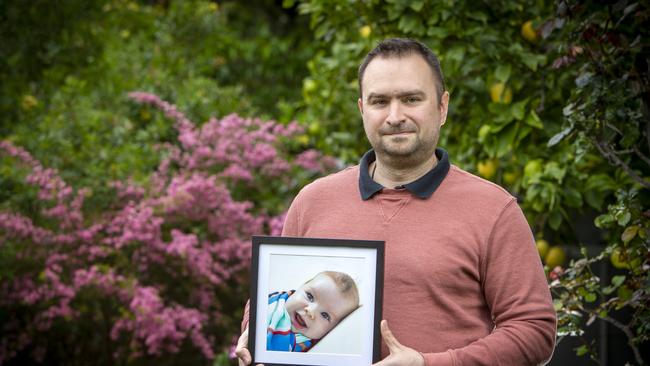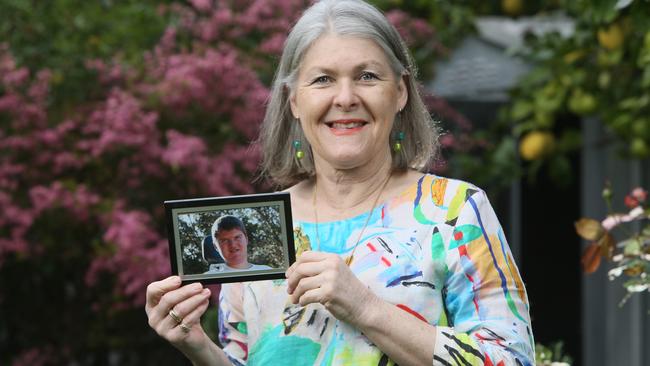Women’s and Children’s Hospital mentor program supporting parents of terminally ill children
Penny was born happy and smiling, but at six weeks of age her parents were given the most devastating news – their sweet baby girl had only months to live.
Lifestyle
Don't miss out on the headlines from Lifestyle. Followed categories will be added to My News.
Frank Allan only got to spend four months with his “little miracle” Penny.
At just six weeks old, his “smiling, happy” baby girl was diagnosed with spinal muscular atrophy and given six months to live.
“It all happened very fast. We were given six months and she made it to four months,” Mr Allan recalled.
“It took a long time to accept that (diagnosis) and to register it … waking up thinking ‘Well that was a bad dream and then realising that’s not a dream, that’s the reality of the situation.”
Four years after their daughter’s death in 2017, Mr Allan and his wife Ali joined a new mentor program to help other parents whose children have been given a life-limiting diagnosis.

A pilot of the Australian-first program was funded by The Hospital Research Foundation last year and run through the Women’s and Children’s Hospital Paediatric Palliative Care Unit. Funding from foundation will now ensure it continues.
Hilary Rowe, whose son Callum died in 2009 at the age of 18, also took part.
Callum was diagnosed with Duchenne muscular dystrophy at almost four-years-old.
In the final year of his life his heart deteriorated and Ms Rowe stopped working to care for him at home, supported by the WCH palliative care team.
“He died at home which is what he wanted, with his family. He wasn’t scared,” Ms Rowe said.
“It doesn’t matter how long you’ve known it’s coming for or how prepared you are, it’s always a shock and you’re never quite ready when it happens.
“The thing about grief and loss is you can cope ... but it does never leave you, it’s always there.
“When you start to talk about it those emotions come back up, which is why this peer mentor program is so important ... for the families to have people who know what they are going through... and understand that level of emotion.
“It was a good experience for us in terms of our healing process as well.”

Hospital Research Foundation chief executive Paul Flynn said the program was intended “in some small way, to help ameliorate parents’ feelings of stress and social isolation and help them feel less overwhelmed”.
Mr Allan said it had been “quite an empowering thing, to take this real tragedy that could eat you up as a person, and you can turn that into a positive to help someone else”.
“It’s about knowing you can get through it, because there are times where you go ‘I don’t think I can’,” he said.
“But we’re still here. I’m not going to tell you it’s easy, because it’s not, but there are things you can do.”
After the shock of Penny’s diagnosis Mr and Mrs Allan set about “making memories” with their daughter, taking her to the zoo and the beach.
“We got some nice photos of her looking out onto the sunset and ...the look on her face when she saw all the colours,” Mr Allan recalled.
“She would smile, she would laugh. Friends of mine who got to meet her, they still talk about her eyes.
“Someone bought her a little Supergirl figurine and, because she couldn’t reach for it, we would fly it over her and she’d just watch it constantly. That became like a moniker for her. She was our super girl.”





